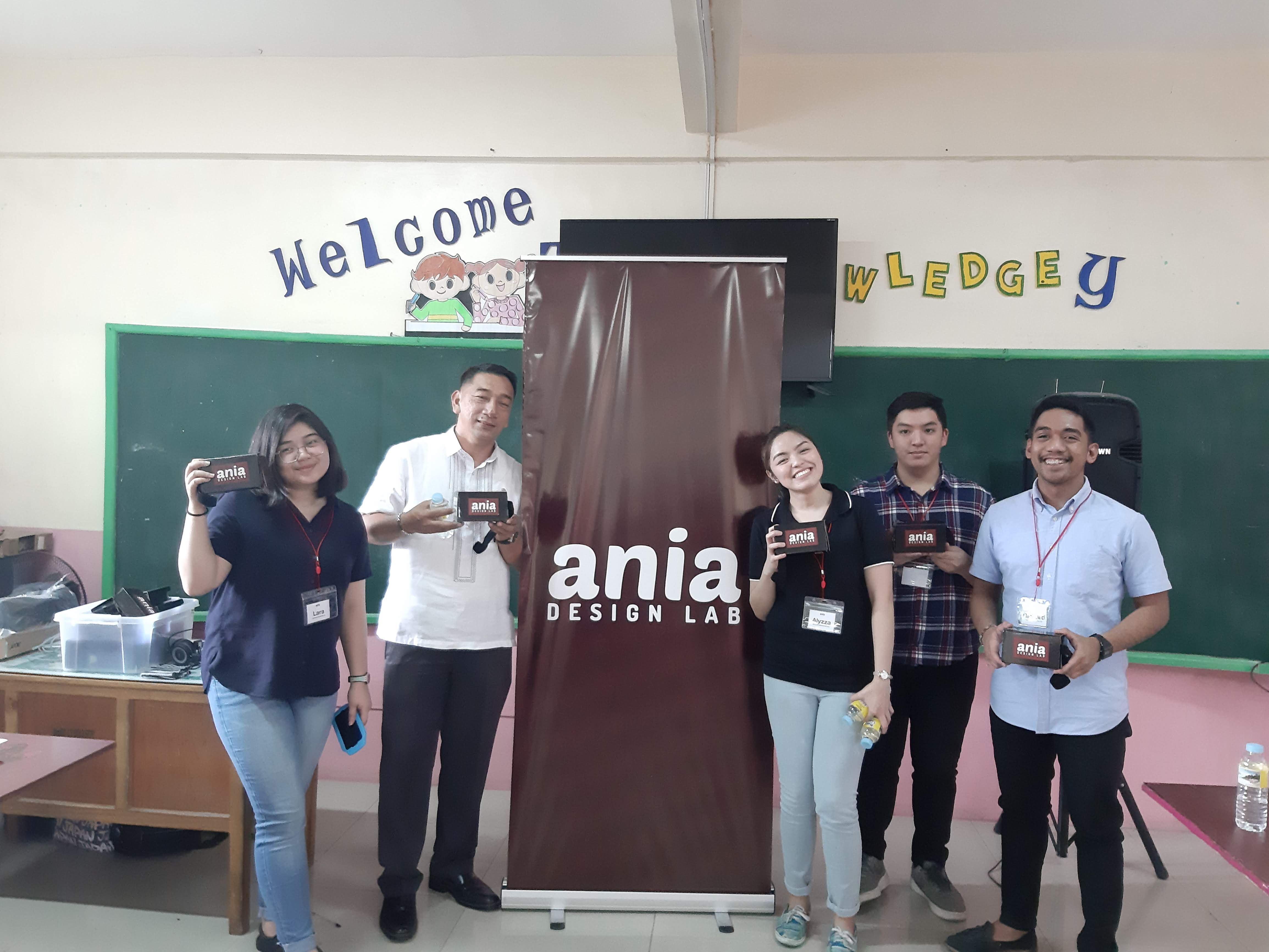The Disaster Preparedness Simulator uses augmented reality as a novel tool for communities to experience and learn from authentic disaster scenarios and improve preparedness. The Philippines is at high risk from cyclones, earthquakes, floods, landslides, tsunamis, volcanic eruptions, and wildfires with 74 per cent of the population vulnerable to their impact. The innovators are targeting teachers, students and administrators with a start-up that can be duplicated for other risk scenarios.
The Philippines is at high risk from cyclones, earthquakes, floods, landslides, tsunamis, volcanic eruptions, and wildfires with 74 per cent of the population vulnerable to their impact. Yet it has proven difficult to authentically prepare young people for disasters, despite their high vulnerability.
Patrick Naui, Alyzza Delgado and Lara Severino – all computer science majors from De La Salle University – sought to optimise the teaching of disaster preparedness under the school curriculum.
The Anya Design Lab team discovered that there were low participation rates in disaster preparedness classes where traditionally role play and drills are used. But many students said they wanted a more innovative and realistic way to learn. The team’s solution is the Disaster Preparedness Simulator, which uses virtual reality as a novel tool for communities to experience and learn from authentic disaster scenarios and improve preparedness. It focuses on three common natural hazards: flooding, storm surge, and earthquakes. Users are immersed in realistic disaster situations where they would have to make decisions to survive. At the end of each scenario, users are presented with their remaining ‘life score’ to determine the effectiveness of their choices.
“There was not opportunity for students to apply what they had learned inside the classroom, because they can only do so during actual disasters,” Patrick explained. “The VR simulator put them in such a disaster situation where they can make life and death decisions without compromising their safety.”
The innovators are targeting teachers, students and administrators with a start-up that can be duplicated for other risk scenarios. These include developing specific scenarios for use by businesses to protect their human capital and investments. They also plan to incorporate targeted advertising into freely-distributed simulators. To date, the team have partnered with an elementary school in Malabon City – a low lying area prone to flooding as well as liquefication during earthquakes. Their simulator was integrated into the school improvement plan. Testing was also conducted in rural areas with students from two schools, with positive learning feedback.
The group has received proposals from investors keen to tap into the simulator’s potential in the education sector.
“Once we get enough partner schools, the municipal government is more likely to follow,” says Patrick.
More Detail About The Innovation
Problem: Disaster training is not realistic
Solution: Disaster preparedness simulator that uses virtual reality to expose participants to common local disaster scenarios.
Current status: Partnership with a school, which has mainstreamed the simulator into the school improvement plan. Successful testing at two rural schools. Ania has hired six people so far and will require up to 25 people over the next three years. Supported by Tuklas Innovation Labs.
Business model: Specific scenarios for use by businesses Targeted advertising in freely-distributed simulators.
Proposition: Seeking US$250,000 over three years to develop new tools, scenarios, partnerships.
Prospects: Widen the user base through partnerships with more schools with the aim of bringing the municipal government on board.
About the Founders: Computer science majors from De La Salle University
Contact: TUKLASdotPH@gmail.com +632.813.0030 to 32
Read more about other innovations from the DEPP Innovation Labs.

